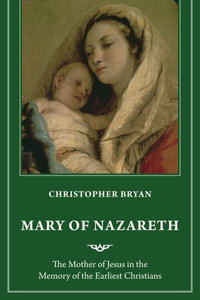Fifty-two years ago [in 1966] Archbishop Michael Ramsey of Canterbury visited Rome and agreed with the Pope to inaugurate an Anglican-Roman Catholic theological dialogue. Three phases of the Anglican-Roman Catholic International Commission (ARCIC) resulted and continue to this day. ARCIC I agreed on a statement on Eucharistic Doctrine in 1971 and an Elucidation of it in 1979. The Vatican declined full endorsement of these, and in 1994 ARCIC II produced Clarifications of them, which the Vatican accepted as sufficient. Colin Buchanan, who himself published the 1971 Statement in England, has followed the international dialogue closely since 1971. He here prints all the relevant texts and examines in detail the attempted reconciling of traditional Roman Catholic eucharistic belief and Anglican reformed doctrine. His study includes Apostolicae curae and Malines, and in the modern era follows public and synodical debate, and the question of ""reception."" Three unprecedented unique features are: first, a diachronic study of the one doctrine; second, a fair regard for reformed Anglican beliefs; and third, a relating of dogmatic theology to eucharistic liturgy. The history prompts the question that forms the book's title, and close following of that history also provides the answer.
""A fascinating and detailed account of the work of ARCIC and the response of the two Communions in search of an answer to the question of whether Anglicans and Roman Catholics agree on the Eucharist. Even if some may not entirely agree with all of the use of the evidence, Bishop Colin's reflections will help us reconsider and perhaps refine the processes of response to, and reception of, the results of ecumenical dialogue.""
--Dame Mary Tanner, European President of the WCC from 2006 to 2013
""Bishop Colin Buchanan's historical and theological study concentrates on one of the themes that was dealt with by the Anglican Roman-Catholic International Commission (ARCIC): the Eucharist . . . His careful analysis of all relevant documents leads to the conclusion that there is no substantial agreement on the eucharist between the two Communions . . . His arguments will certainly challenge ecumenists and theologians because they put the common opinion into question that ARCIC has reached a substantial agreement on the Eucharist.""
--Adelbert Denaux, member of ARCIC II 1993-2004 and of ARCIC III 2011-17, and joint-author of the Final Report of ARCIC II
""Colin Buchanan gives a timely review of the ARCIC agreed statements on the Eucharist, and reveals the many disagreements that have been missed or ignored. Both Roman Catholic and Anglican theologians will need to ponder his arguments and conclusions.""
--Bryan D. Spinks, Yale Institute of Sacred Music and Yale Divinity School
""In 1997 I enjoyed a coffee with Cardinal Ratzinger, later to become Pope Benedict XVI. I asked him point-blank: 'Why was the Congregation for the Doctrine of the Faith so negative towards The Final Report?' In strong Germanic English he replied: 'Because it did not comply with Catholic doctrine'. In this splendid book Colin Buchanan traces the hopes of successive Catholic and Anglican theologians as they sought to unite our two Communions. Perhaps this dream will be realized one day but Dr. Buchanan shows why this way of proceeding was doomed to fail.""
--George Carey, Archbishop of Canterbury 1991-2002
""This fascinating book by Colin Buchanan is both important and disturbing. In the end, it is a critical case study of one example of the reception of an agreed statement from a significant bilateral dialogue, ARCIC. Did the Anglicans and Roman Catholics agree on the Eucharist? is a challenge to the nature and purpose of all ecumenical dialogues, and to consensus ecumenism. From the perspective of the Anglican Communion and its theological ecumenical engagements, this book demands a careful reform and renewal of our processes of reception.""
--John Gibaut, Director for Unity Faith and Or

























